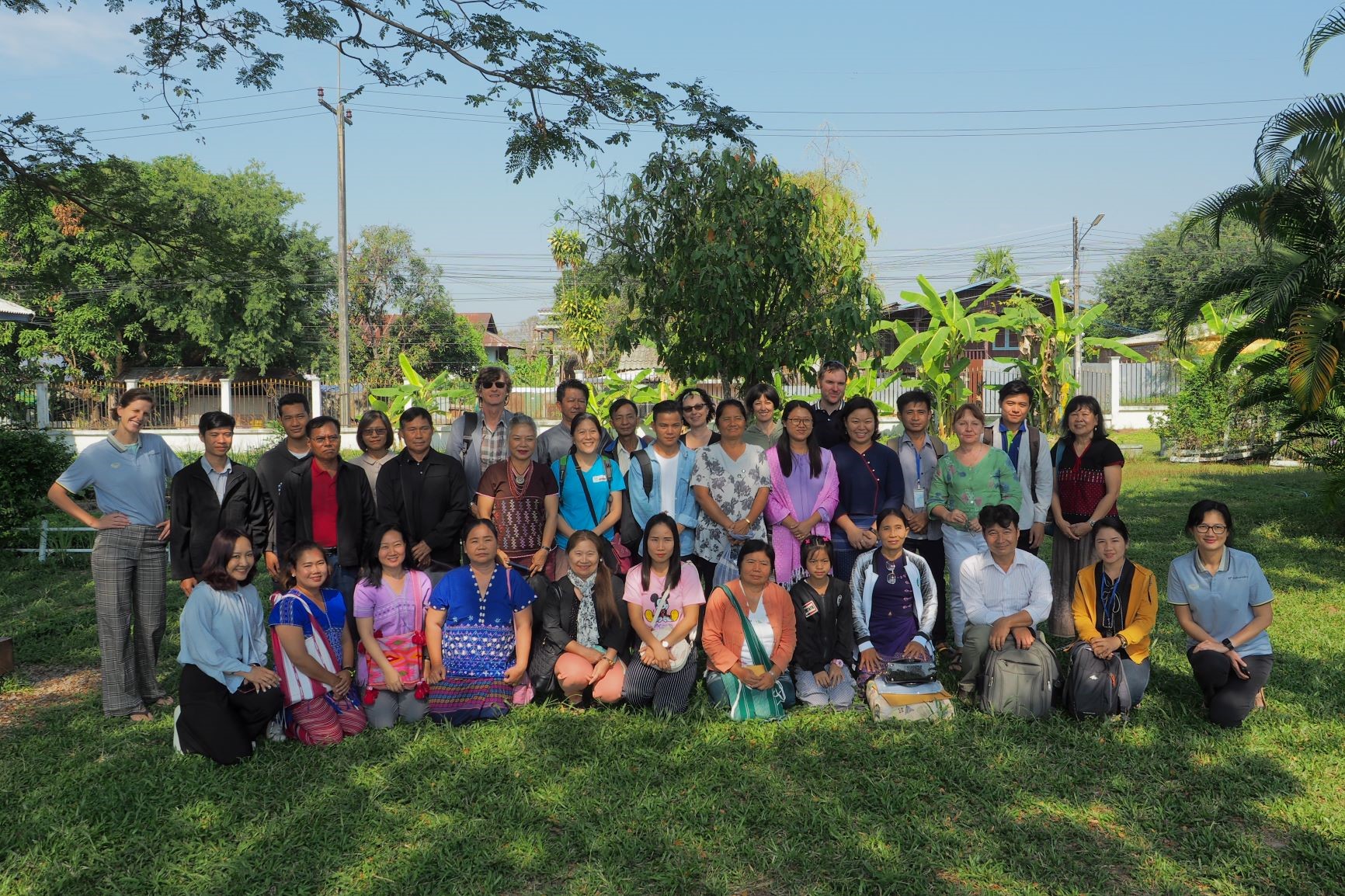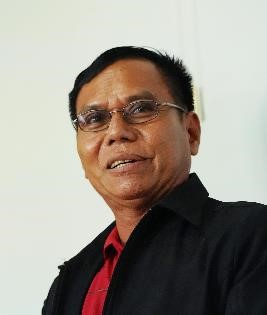
T-CAB members gather to celebrate 10 years of service. Fifth from left, second row, Napat Khirikoekkong, T-CAB facilitator
Image: Supa-at Asarath, Nattapat Jatupornpimol
The Tak Province Border Community Ethics Advisory Board, or T-CAB, was formed on the Thai-Myanmar border in 2009 with support from the Shoklo Malaria Research Unit (SMRU), Mahidol Oxford Tropical Medicine Research Unit (MORU) and the Ethox Centre, Oxford.
Tak Province, home to many displaced ethnic minorities, has been the site of several important research activities including those leading to artemisinin-based combination therapies becoming the treatment of choice for malaria globally.
The T-CAB was formed to serve two main objectives: to safeguard the rights, safety and wellbeing of the research participants, and to advise researchers on ethical issues related to research and health-related projects conducted in this area. It operates independently to strengthen research practices in the border area. Its role in community consultation processes is vital to improving healthcare for vulnerable groups such as ethnic minorities, pregnant women, and newborn babies.
Currently, the T-CAB has 13 members comprising of 6 women and 7 men, with ages ranging from their 20s to late 50s. The members come from diverse backgrounds: three members work in the civil service sector, four work in the health sector, two work in the education sector, and four work in farming. The members are united by a common desire to serve their communities by ensuring access to healthcare, protecting the rights and well-being of community members participating in research, and highlighting health needs in their communities.
Video: Phaik Yeong Cheah
To thank the T-CAB members for their continuous dedication to their communities, a celebration of T-CAB’s 10th anniversary was held in January 2019 at the Hospitality and Catering Training Centre, The Passport, Mae Sot, Thailand. The venue was selected for its unique program offering underprivileged youth jobs and training in the hospitality and catering sector. Every year, the center offers about 30 young people the opportunity to learn skills from cooking to accommodation and reception over a two-year period.
With 10 years of service, the T-CAB continues to work to ensure mutual benefit in healthcare improvement for the tens of thousands of pregnant women, ethnic minorities and newborn babies who call the border region home. The T-CAB is funded by a Wellcome Trust Provision for Public Engagement grant.
Mr. Somchai Netnirandon, T-CAB member since January 2009
 “Since I became a member of T-CAB, I’ve attended the meetings to discuss with other members what our needs are… looking back, the most common illness was malaria, but now we can say that Malaria is almost gone. That is why I joined this board—in my view, it is really effective. If anyone gets sick, I ask them what they have, and if it looks like malaria, I will guide them to go to SMRU clinic.
“Since I became a member of T-CAB, I’ve attended the meetings to discuss with other members what our needs are… looking back, the most common illness was malaria, but now we can say that Malaria is almost gone. That is why I joined this board—in my view, it is really effective. If anyone gets sick, I ask them what they have, and if it looks like malaria, I will guide them to go to SMRU clinic.

Please Sign in (or Register) to view further.